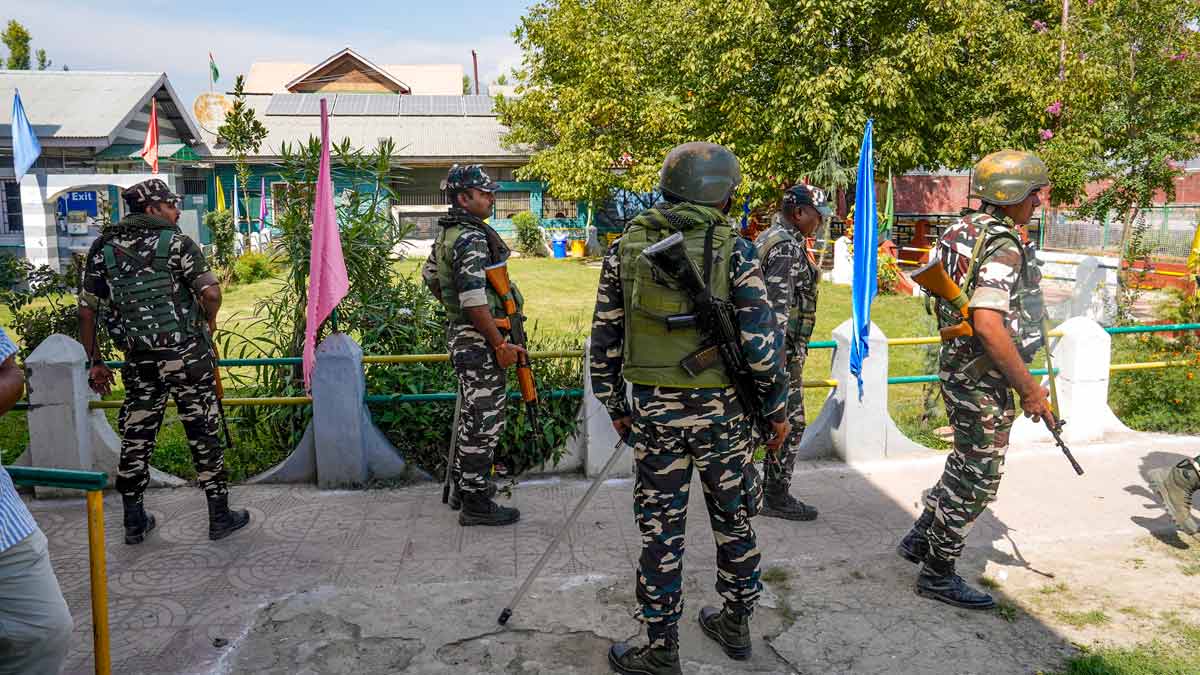A multi-layered security setup has been implemented for the first phase of the assembly elections in Jammu and Kashmir, which begins on Wednesday.
Over 23.27 lakh voters are set to cast their ballots in this phase, deciding the fate of 219 candidates in 24 assembly constituencies spread across seven districts—Anantnag, Pulwama, Shopian, and Kulgam in the Kashmir Division, and Doda, Ramban, and Kishtwar in the Jammu Division.
According to the Inspector General of Police for Kashmir, V. K. Birdhi, all polling stations are secure.
"We have set up special checkpoints at inter-state and inter-district levels, with area dominance and night patrolling in place to ensure smooth, incident-free polling," Birdhi said.
Paramilitary Forces (CAPF), Jammu and Kashmir Armed Police (JKAP), and Jammu and Kashmir Police (JKP) have been deployed as part of a multi-tier security plan for the elections in the union territory.
J&K Police claimed to have made arrangements to ensure that the elections are free, fair, and conducted in an atmosphere free of fear.
Elections in Jammu and Kashmir will be held in three phases. Voting for 24 seats will take place in the first phase on Wednesday, followed by 26 seats in the second phase on September 25. The third phase, covering 40 seats, will be held on October 1, with counting scheduled for October 8.
Political observers believe the National Conference (NC) has an edge in some seats in south Kashmir, while in other constituencies, the contest is expected to be close between the NC and the People's Democratic Party (PDP). Independent candidates, especially those who didn’t receive their party's mandate, could pose a challenge.
The first phase involves 23,27,580 eligible voters, including 11,76,462 male voters, 11,51,058 female voters, and 60 third-gender voters. Youth make significant portion, with 5.66 lakh voters between 18 and 29 years old. Among them, 1,23,960 are aged 18-19, including 10,261 male and 9,329 female first-time voters.
Also, 28,309 Persons with Disabilities (PwDs) and 15,774 voters over 85- years will participate.
There are 3,276 polling stations set up, all equipped for webcasting. Special arrangements include 24 Pink Polling Stations (manned by women), stations for PwDs, youth-managed polling stations, and eco-friendly "green" polling stations. Voting will take place from 7 am to 6 pm.



